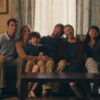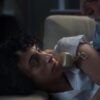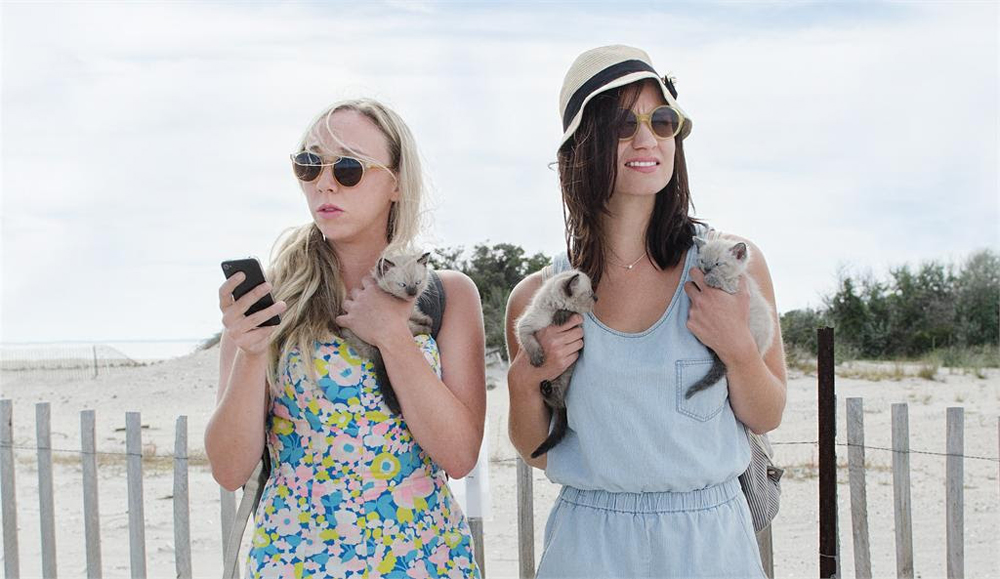There’s an easy joke to be made about the fact that three of the four central players behind “Fort Tilden,” a biting satire of Brooklyn hipster culture, now live in Los Angeles. However, as fun as it is to imagine they were chased out with artisanal pitchforks, it is the quality of their work rather than the content that has led them out west, whether it is co-writer/directors Sarah Violet Bliss and Charles Rogers, who landed staff writer gigs on the revival of “Wet Hot American Summer” or Bridey Elliott, one-half of the film’s dynamic duo of friends who in real life has migrated to LA to build upon the buzz of the film by pursuing projects with her sister, former “SNL” star Abby, and her father Chris.
In fact, what makes “Fort Tilden” special as a whole is how few of the jokes in it are easy, in spite of how ripe a subject as its characters are for ridicule as unashamedly narcissistic and overprivileged postgrads who may have their own apartment but have yet to truly make their own lives. With a streak of indecision that runs the gamut from whether to buy a barrel off the street that would look lovely in their faux-bohemian digs or to travel to Liberia to join the Peace Corps, Harper (Elliott) and Allie (Clare McNulty)’s journey to simply travel a matter of miles to the film’s titular seaside retreat in the hopes of canoodling with a pair of boys becomes anything but a day at the beach.
To hear it from the filmmakers, putting together “Fort Tilden” wasn’t a cakewalk, either, as Bliss and Rogers, two NYU grad students both eager to make something gave themselves a deadline to finish their first film. A miniscule budget may have given them no other choice but to embrace minimalism, but in fact, it has given the finished product a sharp, witty slice of life for millennials that ultimately has a well of empathy as deep as the ocean Harper and Allie find themselves in when they finally reach their destination. Shortly before the film comes out, following its premiere at SXSW last year where it took home the Grand Jury Prize, Bliss, Rogers, Elliott and McNulty spoke about creating these characters, filming on bicycles around the city and in freezing waters in September and how the film deals with privilege.
 What was the urge to get something into production and do this?
What was the urge to get something into production and do this?
Sarah-Violet Bliss: We were classmates at NYU graduate film school together, and we hadn’t worked on anything together before, but we were just hanging out and talking about some funny ideas. Then it came up organically – [the idea of] these two girls who try to get to Fort Tilden. When we said that, we both immediately knew what those characters are and from that, it grew and grew.
Charles Rogers: We had the idea two summers ago, and we wanted to make it by the end of the summer. We just felt like if we took our time with it and pushed the dates any farther, it just wouldn’t happen because you always have good ideas with your friends, then you never follow through with it, so It was like a now-or-never, do-or-die feeling.
How did you know Bridey and Clare would be good together in this as the girls?
Sarah-Violet Bliss: We just hoped. I knew Clare from Oberlin, and I’ve always loved her, and we just thought Bridey was so smart. We had seen some videos of her online, and we were just like, “She seems cool.”
Charles Rogers: It’s so funny to think about that time now, because we didn’t know Bridey and we’re all strangers trying to make something. Now, we’re all really close. It feels weird to think about.
Was that an interesting thing to find the chemistry for this?
Clare McNulty: It was. The directors set us up on a blind date. We all went to Chinatown [for dinner].
Bridey Elliott: I was so scared of not liking the [other] girl I was going to have to spend so much time with, so there was this stiff anxiety in the air of like, “Do we like each other?” But we loved each other right away. In fact, I think the chemistry between us in the movie is so genuine because we didn’t know each other beforehand.
Clare McNulty: Yeah, we got to know each other like as people in between scenes but then it was really easy to hop into our characters.
When it’s a two-person team and there’s two people on screen, did you gravitate towards writing one character or another?
Sarah-Violet Bliss: We were both at the computer at the same time and we have a background in acting. For whatever reason, I was always Allie and [Charles] was always Harper, and we would improvise little lines.
Charles Rogers: They became our spirit animals.
 Was there like some little detail or something you could latch on to to help you figure out who these characters were?
Was there like some little detail or something you could latch on to to help you figure out who these characters were?
Clare McNulty: There’s one detail — this line that Allie has [where she] angrily says, “Well, shouldn’t we bring sunscreen?” Then she doesn’t get any sunscreen. It’s like, well if you think that you need sunscreen, you put on sunscreen and I feel like that’s a pretty good example of the inability to take care of yourself or manifest your wants that Allie has.
Bridey Elliott: I really like when I’m in bed and we have this thing to go to the beach and [Allie’s] like, “You said we’re going to get up early,” and I’m like, “Yeah, like 10”. Ten is early for [Harper]. She really does what she wants and makes her own rules as far as what is right and wrong. They live in this bubble with privilege they have to make all these judgment calls and they just make the wrong ones constantly.
One of the great things the film does is to actually reference the world outside of that bubble – of course, Allie is avoiding her appointment to join the Peace Crops mission in Liberia, but there are other allusions such as Teach for America and the Indian cab driver they use. How did that become a running motif?
Charles Rogers: It is important because they consider themselves jet-setters. Harper has traveled the world and India, and they think of themselves as being very worldly, but then if they set foot in Flatbush Avenue in Brooklyn, all of a sudden, they’re actually very much out of their element. There’s an element to the white privilege that’s being [sent up as] satire in the film, that you want to think of yourself as someone who can easily transcend cultures and has a love for every type of person, but also they select comforts that are exclusive to their own community.
Sarah-Violet Bliss: Yeah. They want to think of themselves as progressive and accepting, and then it’s exactly what Charles said. When it becomes uncomfortable, it’s not ideal for them. One [other] thing that was important to us with the film was to show what happens when people like Allie and Harper are privileged and, when they leave their privileged neighborhood, the kind of interactions that bring out the kinds of contradictions in them that they would otherwise not like for people to see. Part of Fort Tilden’s satire comes from what happens when you have class conflicts.
Money is also a recurring theme as the numbers that Harper tosses out as payment may seem random, but they speak to an extremely warped value system. She’ll pay $200 for a barrel, but she’ll balk at paying $100 for this ride that will get her out of a place she considers hell. Was that something that you kept in the back of your mind?
Charles Rogers: We wanted them to spend so much money, then it was actually hard on the story to achieve that.
Sarah-Violet Bliss: Originally, we [thought], “Harper needs to have spent $1,500 by the end of the day…” The whole day, they’re like, “It’ll be so cheap,” and then they end up spending all this money, and it doesn’t even matter to them if they spend that much money because they they like the idea that it would matter to them to have a cheap day, but they have the means to be able to at least write someone a false check…
Charles Rogers: Yeah, because Harper pays for everything in checks, and she actually doesn’t even have money in her account. [That’s why they’re] checks [because they] are the most intangible representation of currency that we have.
There’s so many great lines in the film, but often they’re metaphors so bizarre I’d imagine it would be hard to get your head around them. Was that the case?
Bridey Elliott: Like “Minnie Mouse rats”? I remember having a hard time memorizing that. Then when we were like actually doing it, it felt real because my character really likes to pontificate like, “In 300 years, those people are going to die in their sleep.” She thinks I can articulate real well about what exactly is wrong with other people. In the moment, when we were doing it, I didn’t really hiccup over that line – that’s the venom that comes out of her when she doesn’t want to look at herself in the mirror.
Were you actually able to more or less shoot in sequence?
Charles Rogers: Mostly. We had to shoot all of the interiors together at the same time just because that was the most effective way…
Sarah-Violet Bliss: But the bike ride was pretty much in sequence.
Charles Rogers: In a sense, we went on that journey with [the actors] because we geographically shot exactly where they are at every moment. It was neat because we got to experience a month-and-a-half of neighborhoods all day long being outside.
Sarah-Violet Bliss: It was ideal for us to have a movie that mostly takes place outside because a lot of what we did with this film was work with the limitations that we had. You have less equipment, and when it’s all in one day, you have less clothing to deal with. Still, what we had to work with were the costumes and the life that Brooklyn has, so we looked for the best frame which had the most interesting stuff in it. I love the colors of our film so much – that’s one thing that you can do with little resources is make a look that you really think works. It feels like summer and we fit [the story] into a structure that is simple in a way, but a lot can happen within it.
Charles Rogers: It was also really hard, and I hadn’t really thought about how [in] a way, the girls in Fort Tilden think it’s going to be an easy day, and when we set out to make it, we were like, “We can make this effectively, cheaply, simply.” I wrote down on my notebook, like, “Sound, lights.” Then when push comes to shove, you’re like, “Oh, my God, this is a huge, overwhelming production, and we’re actually making a film.”
Sarah-Violet Bliss: It really was very optimistic that day, just being like, “We’ll make it for dirt. It’ll be so cheap.”
On one hand, it’s so minimalist, but at the same time, I was impressed so often with the composition of how you’ve shot things. There are so many little things, like how their apartment is symmetrical.
Charles Rogers: Yeah, that apartment was such an insane coincidence to find, too. As soon as we saw it, we were like, “Oh, my God.”
Sarah-Violet Bliss: Yeah, it’s like it was built in the ’80s for this movie.
 Was there a particularly crazy day of shooting on this?
Was there a particularly crazy day of shooting on this?
Bridey Elliott: The first day was crazy because it was basically rained out. I don’t know if we shot a single thing. What was crazy for me was we got Jamaican food for lunch and I had the worst food poisoning I have ever had that night, so I just texted them at midnight like, “I may need some time tomorrow,” which they allowed me. But yeah, that was fun…
Clare McNulty: I can’t believe you even came in the next day. It’s amazing.
Bridey Elliott: It’s the scene with the basic bitches in Brooklyn. I look a little peaked the whole scene.
Clare McNulty: I actually was sick too. Remember my voice?
Bridey Elliott: Your voice is a lot lower in that scene.
Clare McNulty: I’d been in a wedding three days before and I had been screaming during the dance party, so literally three days before I came to set, I had no voice at all. I was desperately drinking tea and being silent hoping that my voice would come back.
Charles Rogers: The day that we shot in the ocean was horrible. It was September and the seasons had already turned. It was no longer time to get in the water, so the water was so freezing. I thought we were going to have killed Bridey by the end of the day. Her lips were blue. At first, she’d come out of the water at the beginning of the day, her teeth chattering and being like, “Was that good?” By the end of it, she just had no words.
Bridey Elliott: It was really hectic shooting there. The water was really cold, freezing. There was a lot of physical discomfort. Agitation was rising inside us [to help play the characters]. It wasn’t like we were all hee hee hee. We were pretty ready to be warm. That all felt natural. Even though the fight before we got there, that was like right when the light was changing. It was like, “We need to get this.”
Clare McNulty: We had fifteen minutes to get this shot. It was also the most text-heavy scene in the movie. Not only was it like one of the longest shots because it was all one take. We also needed to do it faster than we did any other scene in the movie.
Bridey Elliott: We were very under the gun there.
Sarah-Violet Bliss: We all got in the water to do it. We nursed ourselves back to health with ramen.
You also had to bike through the city…
Clare McNulty: I was actually really nervous about it, but it was much easier than I thought it was going to be.
Bridey Elliott: It wasn’t like the biking was exhausting, but the bike pedaling did a number on my legs because I bruise easily.
 Charles Rogers: I photoshopped those off of Bridey’s legs for probably four hours.
Charles Rogers: I photoshopped those off of Bridey’s legs for probably four hours.
Clare McNulty: Somebody at a film festival, asked me, “Towards the end of this movie, Harper gets really tan. She looks really healthy, but your character, she’s like all red. Was that a choice to make her look like that?” and I was like, “It wasn’t really a choice.” Then [Sarah Violet] was like, “But we chose that body.” I was very sunburned at the end of that shoot, and It eventually turned into a tan, so it’s fine.
This is the first feature for both the actresses. Was that an interesting experience to carry something like this?
Bridey Elliott: It was great. We were so connected to it right away, so it wasn’t this experience of like, “I want this to be good and I want it to get like traction.” I didn’t look at it as like, “Oh, this is my start.” It was just like, “Oh, this is a really cool project.” I’m just so glad that I’m even in it.
Clare McNulty: It was really a supportive atmosphere too. It wasn’t like we got on set and they’re like, “Oh, my God, we have so much to do.” It was like, “Yeah, cool. What’s next. Let’s get it. Let’s do this.”
“Fort Tilden” opens on August 14th in Los Angeles at the Laemmle Music Hall and in New York at the IFC Center, among other theaters. A full list of theaters and dates is here. It is also available on VOD.




